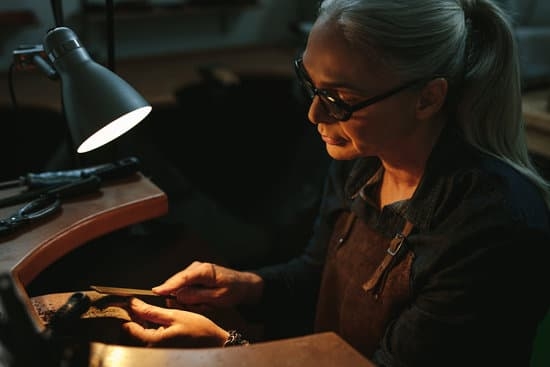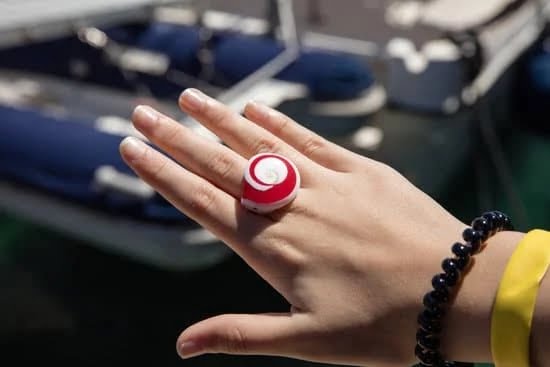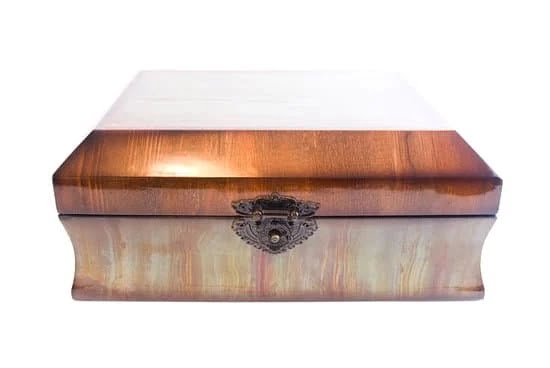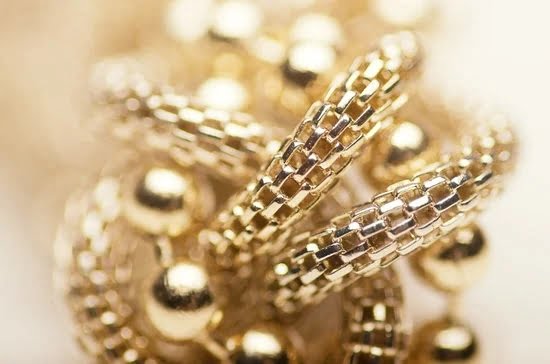Diamonds are known for their unparalleled beauty and brilliance, making them a highly sought-after gemstone. However, caring for diamonds requires more than just admiration; it necessitates proper maintenance to ensure its longevity. One common concern that many diamond owners have is whether jewelry cleaner can ruin their precious stones. In this article, we will delve into the topic of whether jewelry cleaner can indeed cause damage to diamonds and explore the various aspects of diamond care.
Diamonds, despite their reputation for being indestructible, are not impervious to damage. Understanding the composition of a diamond is crucial in understanding its vulnerabilities. With its hardness and durability, a diamond may seem invincible against common household cleaners. However, certain cleaning agents can harm and compromise the integrity of a diamond’s structure over time.
To maintain the beauty and brilliance of your diamond, it is essential to identify the pros and cons of common types of jewelry cleaners available in the market. This knowledge will help you make informed decisions when it comes to cleaning your precious gemstone. While some cleaners may prove effective in restoring your diamond’s luster, others can be too harsh and lead to irreparable damage.
In the following sections of this article, we will explore the harsh reality of how jewelry cleaners can potentially damage diamonds. We will discuss signs that indicate your diamond has been ruined by improper cleaning methods and provide safe alternatives for gentle cleaning at home. Additionally, we will also highlight when it becomes necessary to seek professional help from a jeweler for proper maintenance and restoration.
By understanding the importance of proper diamond care and being aware of potential risks associated with jewelry cleaners, you can take proactive steps in preserving the brilliance of your precious stone. Implementing effective maintenance tips and seeking professional assistance when needed are vital elements in ensuring that your diamond remains sparkling for years to come.
The Composition of a Diamond
Diamonds are known for their hardness and durability, but they are not invincible. Understanding the composition of a diamond can help us explore its vulnerabilities and determine how to properly care for it.
A diamond is composed of carbon atoms that are tightly bonded together, forming a crystal lattice structure. This structure gives diamonds their strength and makes them resistant to scratches. However, despite their strong molecular structure, diamonds have vulnerabilities that need to be considered when cleaning and caring for them.
One vulnerability of diamonds is their susceptibility to damage from high heat. While diamonds have a high melting point, extreme temperatures can cause internal stress within the stone, leading to cracking or even shattering. It is important to avoid exposing diamonds to sudden temperature changes or intense heat, such as when using a torch or open flame near the stone.
In addition to heat, diamonds can also be vulnerable to chemicals and abrasive materials. Some common household cleaners or jewelry cleaning solutions contain harsh chemicals that may cause discoloration or damage the surface of the diamond. Similarly, abrasive materials like toothbrushes or rough cloths can scratch the diamond’s surface or wear down the metal settings holding the stone in place.
To protect your diamond from these vulnerabilities, it is important to take proper care when cleaning and storing it. Avoid using rough materials or abrasive cleaners that may cause damage. Instead, opt for gentle cleaning methods that minimize risk but still effectively remove dirt and grime.
- One safe alternative for cleaning your diamond at home is warm soapy water.
- Fill a bowl with warm water and add a few drops of mild dish soap.
- Gently place your diamond jewelry in the soapy water and let it soak for a few minutes.
- After soaking, use a soft toothbrush or lint-free cloth to gently scrub away any remaining dirt.
- Rinse your jewelry thoroughly under warm running water to remove any soap residue.
- Finally, pat dry your jewelry with a soft cloth or let it air-dry before storing it properly.
By following these gentle cleaning methods, you can keep your diamond sparkling without risking any damage. However, if you are uncertain about how to care for your diamond or suspect that it has already been damaged, it is always best to consult a professional jeweler. They have the expertise and specialized tools required to properly assess and repair any potential damage.
Common Types of Jewelry Cleaners
When it comes to cleaning your diamond jewelry, it’s important to choose the right cleaner that will effectively remove dirt and grime without causing any damage. There are several types of jewelry cleaners available in the market, each with their own pros and cons. Understanding these options can help you make an informed decision on what cleaner to use for your precious diamond.
One common type of jewelry cleaner is a liquid solution that is specifically formulated to clean diamonds. These cleaners often come in a spray or soak form and contain mild chemicals that are effective at removing dirt and residue from the surface of the diamond.
They are easy to use and can be quite effective in restoring the brilliance of your diamond. However, it is important to follow the instructions carefully as using too much or leaving the diamond in the solution for too long can potentially cause damage.
Another type of jewelry cleaner is a ultrasonic cleaner. These cleaners use high-frequency sound waves to create tiny bubbles that help remove dirt and grime from the surface of the diamond. Ultrasonic cleaners are highly effective at cleaning hard-to-reach areas, such as underneath prongs or intricate settings. However, they should be used with caution as prolonged exposure to ultrasonic waves can loosen or even dislodge small stones from their settings.
A popular DIY option for cleaning diamonds is using mild soap and water along with a soft toothbrush. This method allows you to gently scrub away any dirt or debris without causing any damage to your diamond. It is important to avoid using harsh chemicals or abrasive materials as they can scratch or dull the surface of your diamond.
| Jewelry Cleaner Type | Pros | Cons |
|---|---|---|
| Liquid Solution | Effective at removing dirt and residue, easy to use | Can potentially cause damage if not used correctly |
| Ultrasonic Cleaner | Highly effective at cleaning hard-to-reach areas | Prolonged exposure can loosen or dislodge small stones |
| Mild Soap and Water with Soft Toothbrush | Gentle and safe method, easily accessible materials | Might not be as effective on tough stains or heavily soiled diamonds |
The Harsh Reality
Jewelry cleaners can be a convenient tool for keeping your diamond jewelry looking its best. However, it’s important to understand that some of these cleaners can actually do more harm than good. In this section, we will explore the harsh reality of how jewelry cleaners can damage diamonds.
One common type of jewelry cleaner is the ultrasonic cleaner. This device uses high-frequency sound waves to create vibrations that help remove dirt and grime from your diamond. While ultrasonic cleaners are effective at cleaning, they can also be quite harsh on diamonds. The vibrations created by the cleaner can weaken or loosen the prongs holding the diamond in place, increasing the risk of losing the stone.
Another popular type of jewelry cleaner is a solution or liquid-based cleaner. These cleaners often contain chemicals that are designed to break down dirt and oil on the surface of your diamond. However, these chemicals can also react with certain types of gemstones or metals, causing them to become discolored or damaged. Additionally, if not rinsed off properly, residue from the cleaner can build up on your diamond and dull its sparkle over time.
To mitigate the potential damage caused by jewelry cleaners, it is important to take precautionary measures when using them. One way to do this is by avoiding cleansers that contain ammonia or other harsh chemicals. Instead, opt for gentle cleaning methods such as using a soft toothbrush with mild soap and warm water to clean your diamond jewelry.
In summary, while jewelry cleaners may seem like a quick fix for dirty diamonds, they can actually cause significant damage if used incorrectly or without caution. It is crucial to choose appropriate cleaning methods and products to protect your precious diamonds from harm. Now that we understand how jewelry cleaners can damage diamonds, let’s move on to identifying signs of damage in the next section.
Signs of Damage
Once you understand the potential risks that jewelry cleaners can pose to diamonds, it’s important to know how to identify if your diamond has been damaged or ruined. Here are some signs to look out for:
- Cloudiness or Lack of Sparkle: One of the most noticeable signs of damage is when your diamond appears cloudy or lacks its usual sparkle. This could indicate a buildup of residue or scratches on the surface of the stone.
- Visible Scratches: While diamonds are incredibly durable, they are not completely immune to scratching. If you notice visible scratches on your diamond, it could be a clear indication that it has been damaged by a harsh jewelry cleaner.
- Changes in Color: Diamonds naturally reflect light and appear colorless or near-colorless. However, exposure to certain chemicals in jewelry cleaners can cause discoloration or changes in color. If your diamond starts to appear yellowish or brownish, it may have been affected by harsh cleaning methods.
- Loose Stones or Damaged Settings: Another sign of damage is when the diamond becomes loose in its setting or the setting itself shows signs of wear and tear. Harsh chemicals in jewelry cleaners can weaken prongs and settings over time, leading to potential damage or loss of the diamond.
| Signs of Damage | How to Identify if Your Diamond Has Been Ruined |
|---|---|
| Cloudiness or Lack of Sparkle | A buildup of residue or scratches on the surface. |
| Visible Scratches | Indicates damage from harsh jewelry cleaner. |
| Changes in Color | Discoloration or color changes due to exposure to chemicals. |
| Loose Stones or Damaged Settings | Weakened prongs or settings from harsh cleaners. |
If you notice any of these signs, it is important to take immediate action. Continuing to wear a damaged diamond can worsen the problem and potentially lead to further damage or loss. The next section will discuss safe alternatives and gentle cleaning methods that can help protect and preserve your diamond.
Safe Alternatives
When it comes to cleaning your diamond, it is important to use methods that are gentle and won’t cause any damage. There are several safe alternatives to traditional jewelry cleaners that can effectively clean your diamond while preserving its brilliance.
One of the most popular and effective methods for cleaning diamonds at home is using a mixture of mild dish soap and warm water. Simply fill a small bowl with warm water and add a few drops of mild dish soap. Gently immerse your diamond jewelry into the soapy water and let it soak for about 15-20 minutes.
After the soaking time, use a soft brush, such as a toothbrush with soft bristles, to gently scrub away any dirt or grime from the diamond. Rinse the jewelry under warm running water and pat dry with a soft, lint-free cloth.
Another safe alternative for cleaning diamonds is using an ultrasonic jewelry cleaner. These machines use high-frequency sound waves to create tiny bubbles that help remove dirt and grime from the surface of the diamond. However, it is important to note that not all diamonds can be safely cleaned in an ultrasonic cleaner, especially if they have any cracks or fractures. It is always best to consult with a professional jeweler before using an ultrasonic cleaner on your diamond.
For those who prefer natural cleaning methods, there are also options available. One technique involves creating a paste using baking soda and water. Apply the paste onto a soft cloth or toothbrush and gently rub it onto the diamond, paying close attention to any areas with visible dirt or stains. Rinse the jewelry under warm running water and dry thoroughly with a soft cloth.
By using these safe alternatives for cleaning your diamond, you can ensure that its brilliance is preserved while avoiding any potential damage caused by harsh chemicals or methods. Remember to always handle your diamond jewelry carefully during the cleaning process and consult with a professional jeweler if you have any concerns or questions.
Seek Professional Help
Understanding the Expertise of Jewelers
When it comes to maintaining the beauty and integrity of your diamond, sometimes it’s best to leave it to the professionals. Jewelers are highly trained experts who possess knowledge and skills specific to handling and cleaning precious gemstones like diamonds. Consulting a jeweler should not be seen as a sign of weakness or lack of ability, but rather as a proactive step in preserving the longevity and brilliance of your diamond.
When You Should Consult a Jeweler
While there are safe alternatives for cleaning your diamond at home, there are certain situations where seeking professional help is necessary. One such situation is when you have intricate or fragile jewelry settings that require special care. Delicate prongs or settings can easily get damaged during cleaning if not handled correctly. In these cases, a jeweler will have the expertise to clean your diamond without causing any harm to the setting.
Additionally, if you notice any signs of damage on your diamond after using jewelry cleaners, it is important to consult a jeweler immediately. They will be able to assess the extent of the damage and provide suitable solutions for repair or restoration. The sooner you address any issues with your diamond, the better chance you have of preventing further damage and preserving its value.
The Benefits of Professional Cleaning
Apart from their expertise in handling delicate jewelry settings, jewelers also have access to specialized equipment and cleaning solutions that are not available for general consumer use. These tools allow them to thoroughly clean your diamond without causing any harm. Moreover, by regularly visiting a jeweler for professional cleaning, they can inspect your diamond for any potential issues such as loose stones or damaged settings that may require prompt attention.
Furthermore, consulting a jeweler for cleaning ensures that proper precautions are taken throughout the entire process. This includes securing your diamonds safely during transportation and using suitable methods based on the specifics of your diamond. With their knowledge and experience, jewelers are well-equipped to handle any challenges that may arise during the cleaning process, giving you peace of mind knowing that your precious diamond is in capable hands.
Prevention is Key
Maintenance Tips for Keeping Your Diamond Sparkling
To ensure that your diamond stays sparkling and beautiful for years to come, it’s important to follow proper maintenance tips. Prevention is key when it comes to diamond care, as taking proactive steps can help minimize the risk of damage. Here are some useful maintenance tips to keep your diamond looking its best:
Cleaning Routine
Regularly cleaning your diamond is essential to maintain its brilliance and sparkle. However, it’s important to be mindful of the cleaning products you use. Avoid harsh chemicals and abrasive cleaners, as they can cause damage to the diamond.
Instead, opt for gentle cleaning methods using mild dish soap and warm water. You can soak your diamond jewelry in this solution for a few minutes, then gently scrub with a soft brush or cloth. Remember to always rinse with clean water afterward.
Safe Storage
Proper storage is crucial in preserving the beauty of your diamonds. When not in use, store your diamond jewelry in a fabric-lined jewelry box or a soft pouch to prevent scratches and other damage. It’s also advisable to store each piece separately or use dividers within the box to avoid any contact between diamonds and other gemstones or metals.
Avoid Contact with Chemicals
Chemicals found in household cleaners, cosmetics, hair products, and even some skincare items can be harmful to diamonds. They can cause discoloration or even corrode the metal settings surrounding the stone. It’s therefore important to remove your diamond jewelry before engaging in activities where it may come into contact with chemicals such as swimming or using cleaning agents.
Regular Inspections
Make it a habit to inspect your diamond jewelry periodically for any signs of damage or loose stones. If you notice any issues such as loose prongs or mounting, it’s important to have them repaired promptly by a professional jeweler. Regular inspections can help catch any potential problems early on and prevent further damage.
By following these maintenance tips, you can help preserve the brilliance and beauty of your diamond. It’s important to remember that prevention is key when it comes to caring for your diamond, as proper maintenance can significantly reduce the risk of damage. However, in some cases where your diamond does require cleaning or repair, it’s advisable to seek professional help from a trusted jeweler to ensure that it’s handled correctly.
Conclusion
In conclusion, it is crucial to understand the importance of proper diamond care to keep your precious gemstone looking its best. While diamonds are known for their durability, they are not invincible and require regular maintenance to maintain their brilliance and beauty.
As explored in this article, the composition of a diamond makes it susceptible to damage when exposed to harsh chemicals found in certain types of jewelry cleaners. These cleaners can cause discoloration, erosion, or even chip away at the surface of the diamond. It is essential to be aware of these vulnerabilities and choose safe alternatives or consult a jeweler for professional cleaning.
By understanding the signs of damage caused by jewelry cleaners, you can identify if your diamond has been ruined. Look out for changes in color, clarity, or any visible scratches or chips on the stone. If you notice any such signs, it is important to take immediate action to prevent further damage and consult a professional jeweler for assistance.
To keep your diamond sparkling and protected, consider following safe alternative cleaning methods outlined in this article. Gentle cleaning with mild soap and water or using specialized jewelry cleaning solutions designed specifically for diamonds can go a long way in preserving their brilliance.
Lastly, prevention is key when it comes to maintaining your diamond’s shine. Regularly clean your diamond at home using gentle methods, avoid wearing it during activities that may lead to damage, and schedule routine check-ups with your jeweler to ensure that any potential problems are detected early on.
Remember that with proper care and maintenance, you can protect the value and beauty of your diamond for years to come. So treat your precious gemstone with care and give it the attention it deserves – after all, a well-preserved diamond will continue to sparkle as a testament to your enduring love.
Frequently Asked Questions
Is jewelry cleaner bad for diamonds?
Jewelry cleaner is not necessarily bad for diamonds, but it is important to use the right kind of cleaner and follow proper instructions. Most commercial jewelry cleaners are safe for diamonds, but some may contain harsh chemicals that can potentially damage the metal or certain gemstones that may be set alongside the diamond.
To avoid any potential harm, it is best to choose a specifically formulated jewelry cleaner that is safe and gentle for diamonds.
Can I clean my diamond ring with jewelry cleaner?
Yes, you can clean your diamond ring with jewelry cleaner, provided that you select a suitable cleaner and follow the directions carefully. It is recommended to use a mild solution or foam designed specifically for cleaning jewelry, especially diamonds. Gently brush the ring using a soft-bristle brush to remove any dirt or debris, paying attention to harder-to-reach areas such as under the setting.
Rinse thoroughly with water and dry gently with a lint-free cloth. However, if your diamond ring has any specific characteristics or delicate settings, it may be wise to consult with a professional jeweler before attempting to clean it yourself.
What not to clean your diamond with?
When it comes to what not to clean your diamond with, it’s crucial to avoid using household cleaners such as chlorine bleach or abrasive substances like toothpaste or baking soda. These cleaning agents are too harsh for diamonds and can cause damage by scratching the metal or dulling the stone’s brilliance over time.
Additionally, avoid using harsh brushes made of materials such as steel wool as they can scratch both the diamond and its setting. It’s always advised to stick with specially formulated jewelry cleaners that are intended for use on precious gemstones like diamonds.

Welcome to my jewelry blog! My name is Sarah and I am the owner of this blog.
I love making jewelry and sharing my creations with others.
So whether you’re someone who loves wearing jewelry yourself or simply enjoys learning about it, be sure to check out my blog for insightful posts on everything related to this exciting topic!





